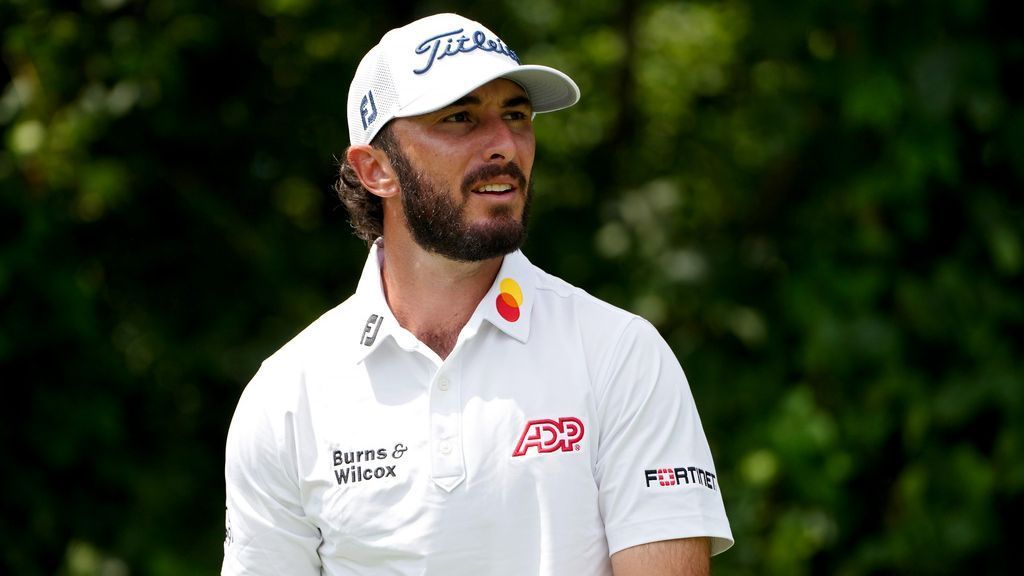A.J. Liebling will at all times be boxing’s literary normal bearer, his masterwork The Candy Science and different books sure to search out appreciative followers via the generations. If there’s a prime desk of boxing scribes, little doubt Liebling is at its head. Nonetheless, my fellow Scotsman, Hugh McIlvanney, undoubtedly warrants at the very least a seat on the identical desk, a sentiment expressed by many when the esteemed journalist died in 2019 on the age of 82.
As a sportswriter, Hugh showcased his robust lyricism, marvelous originality and piercing remark throughout a number of many years masking the combat recreation for The Observer, The Sunday Instances, Sports activities Illustrated and different esteemed publications. A collection of his most interesting reportage is assembled in his seminal work, McIlvanney on Boxing, which initially appeared in 1982 however has since been re-released. My very own copy got here out in 1997, which means a considerable portion of the ebook offers with eminently writeable figures resembling Mike Tyson, Evander Holyfield, Riddick Bowe, Lennox Lewis and Julio Cesar Chavez. Within the fingers of a grasp craftsman like McIlvanney, the exploits of those fistic luminaries are writ giant, their personalities blown as much as god-like proportions.

Till I picked up the ’97 version of McIlvanney on Boxing, I had been much less acquainted with Hugh’s output than his brother’s. For the unfamiliar, his youthful sibling, William, is thought to be certainly one of Scotland’s biggest novelists, his 1975 work, Docherty, thought-about a traditional. Having devoured various William’s books, I might be forgiven for considering Hugh would possibly fall in need of these not possible requirements, however just some pages in and such reckless assumptions have been completely dynamited.
There are numerous similarities between the 2, not least a present for simile and metaphor; a capability to imbue the only, most simple gestures and conversations with a mighty sense of gravitas, and a really actual empathy for one’s fellow human beings. The writing on this compendium – like William’s (and Hemingway’s, by the way) – is hard but trendy; unvarnished, but effusive in its navigation of deep and delicate feelings. In different phrases, the form of writing completely suited to the unforgiving however paradoxically rewarding world of pugilism.
The ebook opens with “The Case In opposition to Boxing,” a brief however punchy piece concerning the intermittent clamour for the abolition of the game McIlvanney dearly loves. The author makes no bones about his ethical ambivalence, although he does take abolitionists to activity for oversimplifying their arguments. “Aggression is central to all aggressive sports activities,” he causes, “and it will be astonishing if there weren’t many younger males left dissatisfied with the sublimation of it concerned in ball video games, in monitor and subject athletics, in journey pursuits resembling mountaineering or within the racing of horses or machines. Such natures starvation for the rawest type of competitors and which means boxing.”

The items that observe are divided into 5 components: “The Alpha…”, which covers Ali’s profession from 1966 to 1975; “A few of Our Personal Who Might Have a Row,” which options stirring accounts of battles involving Terry Downes, Walter McGowan, Ken Buchanan and others; “Prodigies and Prisoners,” “…and the Omega,” a bit chronicling Ali’s inexorable late ‘70s decline, and “Additional Dispatches,” a superb array of items spanning 1985 to 1997.
Shot via with arch humour and an admirable consideration to element, these are certainly a number of the most interesting boxing articles ever printed. It’s telling that McIlvanney stays the one sports activities author to be named Journalist of the Yr, along with seven wins for Sports activities Journalist of the Yr. These skilled victories have been as a lot a mark of his obsessive element and accuracy as his partaking and eloquent fashion.
Naturally Ali is a determine to whom McIlvanney – like so lots of his fellow scribes – was strongly attracted. The early items are befitting of The Biggest, in that they set his towering achievements in correct context and recount them with frequent reference to the deep reserves of braveness, will and expertise they necessitated. “At his finest,” writes McIlvanney, “his unequalled mobility made him as safe as a dive-bomber attacking a wagon prepare.”

It’s not all about Ali’s prowess within the ring although, for McIlvanney extracts which means and substance from greater than his gloved exploits. He understood what Ali represented, his significance within the canon of boxing lore and his wider attraction as an outspoken black American. Though there have been hundreds of thousands of phrases written about boxing’s most celebrated star, McIlvanney was certainly one of comparatively few to whom Ali held court docket. “On a road referred to as Topaz in New Orleans, in a villa by the Zaire River exterior Kinshasa and on the seafront in Nassau, Bahamas, within the hour earlier than daybreak, I used to be lucky sufficient to report a few of his extra personal reveries.”
As a consequence, there’s an simple credibility behind observations resembling this one: “Ali appears to see his life as an odd, ritualistic play. It might be that the reason of his rantings is that he has at all times felt they have been required by the script that goes along with his future.” Others nonetheless sparkle on the web page, reflections of Ali’s personal blinding luminescence: “In contrast with him, probably the most vivid of his predecessors are blurred figures dancing behind frosted glass.”
When the “Louisville Lip” suffered defeat to Smokin’ Joe Frazier in 1971, his first skilled loss, he was enlarged within the eyes of McIlvanney and within the brilliantly titled piece “Superman at Bay,” the writer writes: “Maybe probably the most outstanding facet of that totally outstanding heavyweight championship combat in Madison Sq. Backyard is that defeat, removed from diminishing Ali within the eyes of his admirers, has deepened their emotions far past the traditional limits of public respect and affection.”

After all Ali would rise, phoenix-like, to precise revenge on his arch nemesis three years later, earlier than surprising the world within the era-defining “Rumble within the Jungle.” On that immortal evening, McIlvanney charges Ali’s moxie above his arsenal of bodily weapons: “When all of the outlandish trappings of a rare occasion have begun to fade and collect mud within the reminiscence, when we’ve got grown imprecise concerning the wheeling and dealing concerned, about how ethnic delight and monetary avarice turned ardent bedmates… what is going to stay totally undiminished is the joy of Muhammad Ali’s efficiency. And for this witness at the very least probably the most vivid recollection is not going to be the inspiration of his ways or the brilliance of his method, spellbinding although they have been. It will likely be the glittering, flawless diamond of his nerve.”
You might say that Ali is a straightforward character to jot down effectively about, given his larger-than-life character. And it’s true that many wonderful books have taken Ali as their topic. Nonetheless, McIlvanney proves equally adept at translating the sheer physicality and murderousness of a few of boxing’s much less garrulous prizefighters. Chew on this elegant nugget, which describes the Foreman vs Norton confrontation: “The impression was that Norton’s spirit had been anaesthetised by the implacable presence of Foreman, that he was a sufferer awaiting his doom. There was by no means any risk that he would have lengthy to attend. The 25-year-old world champion has now grown to a full consciousness of his fearsome capability for destruction.”

George Foreman’s method, let’s be sincere, was pretty agricultural, at the same time as he reduce a cruel swathe via the heavyweight division. However the place lesser writers would focus solely on his atomic energy, the passages right here sketch a splendidly vivid and terrifying image of relentlessness. “The pulverising blows have a tendency to return from each fingers in lengthy arcs, sweeping diagonically to his opponent’s head, and the huge arms typically brush contemptuously via efforts at parrying defence… He quarters the ring with a lethal sense of geometry, using a superbly timed side-step that cuts off escape routes as emphatically as a highway block.”
“Half Two: A few of our Personal Who Might Have a Row” incorporates various terrific items, of most curiosity maybe to British combat followers. I loved studying extra about Terry Downes, Howard Winstone and Walter McGowan, three fighters whose careers I’d by no means investigated.

On the danger of going off on a tangent, my previous newbie coach John McDermott – who gained the Commonwealth gold medal on the 1962 Video games in Perth – was fairly keen on McGowan. Walter hailed from Hamilton, just some miles from the boxing membership McDermott based in Blantyre, and the pair have been about the identical age. McIlvanney writes of McGowan that “he had nearly one of the best fingers I’ve ever seen on a boxer from these islands, and his terribly quick, diversified, damagingly selective punching made him probably the most precociously sensible amatuer.” And by all accounts, John McDermott wasn’t dangerous both!
In any case, McIlvanney casts his discerning eye on McGowan’s second duel with Chartchai Chionoi, Downes’ showdown with Willie Pastrano, and Winstone’s hard-fought defeat to Vicente Saldivar. Studying about these fantastic skirmishes from the 1960’s is a pleasure, with the fascinating characters and subplots matched by the sheer dynamism of the writing itself.
In addition to capturing his topics’ particular person traits, McIlvanney describes the qualities that outline actually magnificent fighters with enviable incisiveness. As proof, right here he explains the damaging modus operandi of Mexico’s Gran Campeón Julio Cesar Chavez:

“For opponents, Chavez brings a high quality of nightmare to the ring, urgent in so remorselessly that he appears to encompass them, permitting no escape from the percussive depth of assaults mounted with a affected person, apparently passionless fury… As soon as he has begun to tear the substance out of his man with rhythmic pounding of the torso, the mastery of vary that governs his punching permits him to modify easily to the weak head, and each time one punch lands a number of others are virtually positive to thud house with equal accuracy.”
His topics needn’t be flawless to obtain such trenchant evaluation. Take into account this description of Lennox Lewis, then ascending the heavyweight ladder within the mid ‘90s: “His self-belief, fed as it’s by all of the proof that he does certainly possess the priceless reward of rising above the difficulties he creates for himself with erratic, typically slovenly method, and in some way discovering a strategy to win, is definitely his biggest asset …”
Suffice to say, I may fortunately quote from this assortment all day lengthy. However one of the best recommendation I may give you is to purchase McIlvanney on Boxing and uncover for your self what an enriching learn it’s. After all, there’s at all times time for one final excerpt, and this one deserves to be savoured.

“Solely deep reserves of instinct or prejudice may allow somebody to be dogmatic about what is going to occur when Leonard, whose velocity, spontaneous ingenuity and technical vary make the phrase virtuosity unavoidable, collides with the outlandish bodily attributes of Hearns, who has a attain that may be a risk to chins within the subsequent county and develops sufficient leverage when he punches to knock down a small constructing.”
As we all know, the combat in query was a traditional and remains to be talked about to today. You may say the identical about McIlvanney on Boxing. — Ronnie McCluskey


















